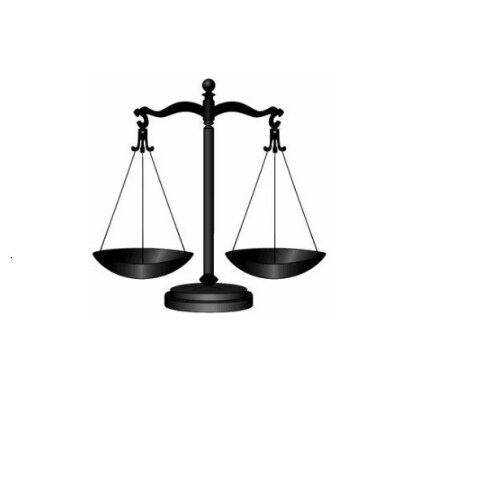Best Juvenile Law Lawyers in Port Harcourt
Share your needs with us, get contacted by law firms.
Free. Takes 2 min.
List of the best lawyers in Port Harcourt, Nigeria
About Juvenile Law in Port Harcourt, Nigeria
Juvenile Law in Port Harcourt, Nigeria, focuses on the treatment and rehabilitation of young people, usually under the age of 18, who have committed delinquent acts. The main legislation covering this area is the Child's Rights Act enacted in 2003. This Act seeks to protect children's rights, promote their wellbeing, and ensure their healthy development into adulthood. Importantly, the Act provides for the establishment of Family Courts that handle matters relating to children, including their welfare, maintenance, adoption, and juvenile delinquency. Its approach tends to be restorative rather than punitive, seeking ways to reintegrate the juvenile into society.
Why You May Need a Lawyer
The juvenile justice system can be complex and threatening for children and their families. This complexity can make it difficult for families to understand their legal rights and obligations, making it necessary to seek advice from a professional. A lawyer becomes crucial in situations where a minor faces charges or is a victim of a crime. They can provide expert guidance on the legal process, represent the minor's best interests, help get fair treatment from law enforcement and the courts, and potentially negotiate lighter sentences or diversion programs.
Local Laws Overview
Key aspects of local laws in Port Harcourt relevant to Juvenile Law involve age thresholds, juvenile courts, and diversion programs. Children as young as ten can be held criminally responsible. Juvenile matters are treated in Family Courts, which are closed-door sessions where children's identities are preserved to protect them. The Child's Rights Act encourages measures that divert children from formal criminal proceedings. This effort manifests in probation, counseling, community service, or installment in a borstal institution. The legislation strongly focuses on rehabilitation and the child's reintegration into society.
Frequently Asked Questions
What is the legal age of a child in Nigeria?
According to the Child's Rights Act, a child is anyone below the age of eighteen.
Can a child under ten years old be held criminally responsible?
The threshold under Nigerian law is ten years, below which a child is considered incapable of committing a crime.
How does the Family Court process work?
Family Court proceedings are typically closed to the public. The child's identity is preserved, and the process is less formal, with a focus on restorative justice and rehabilitation.
What rights does a child have in the juvenile justice system?
A child has the right to due process, fair trial, legal representation, and respect for their dignity and physical and psychological well-being.
What happens if a child is found guilty of a crime?
Instead of punishment, alternative methods such as counseling, probation, or community service are implemented. In severe cases, the child can be sent to a borstal institution for further rehabilitation.
Can the records of a juvenile offender be expunged?
Given Nigeria's focus on rehabilitation, juvenile records are typically confidential and can be expunged under certain circumstances when the child becomes an adult.
What is the role of the parent or guardian in these proceedings?
Parents or guardians are expected to provide support to the child and can be called upon in court proceedings.
Can a child receive a prison sentence?
While it is possible, it’s highly discouraged. The focus is on alternatives such as community service, probationary measures, or borstal institutions for serious crimes.
Do juveniles have a right to a lawyer?
Yes, the Child's Rights Act mandates the right to legal representation for children involved in the justice system.
What happens if a child is a victim of a crime?
The child will be appropriately protected and provided with support services. Law enforcement and the court will work diligently to ensure justice is served.
Additional Resources
Resources available for understanding Juvenile Law include the Child's Rights Act of 2003 and the Nigerian Constitution. Organizations that can assist include the National Human Rights Commission, Legal Aid Council, and various NGOs dedicated to child rights and protection. Your local community may also have legal clinics that offer free advice.
Next Steps
If you need legal assistance in Juvenile Law, the first step is to seek legal counsel who specializes in this field. They will help you understand the laws and represent the best interests of the child in question. Always ensure you choose a lawyer who has experience with juvenile cases and understands restorative justice principles in Nigeria. Simultaneously, take advantage of the resources available to understand the system and manage your expectations.
Lawzana helps you find the best lawyers and law firms in Port Harcourt through a curated and pre-screened list of qualified legal professionals. Our platform offers rankings and detailed profiles of attorneys and law firms, allowing you to compare based on practice areas, including Juvenile Law, experience, and client feedback.
Each profile includes a description of the firm's areas of practice, client reviews, team members and partners, year of establishment, spoken languages, office locations, contact information, social media presence, and any published articles or resources. Most firms on our platform speak English and are experienced in both local and international legal matters.
Get a quote from top-rated law firms in Port Harcourt, Nigeria — quickly, securely, and without unnecessary hassle.
Disclaimer:
The information provided on this page is for general informational purposes only and does not constitute legal advice. While we strive to ensure the accuracy and relevance of the content, legal information may change over time, and interpretations of the law can vary. You should always consult with a qualified legal professional for advice specific to your situation.
We disclaim all liability for actions taken or not taken based on the content of this page. If you believe any information is incorrect or outdated, please contact us, and we will review and update it where appropriate.








